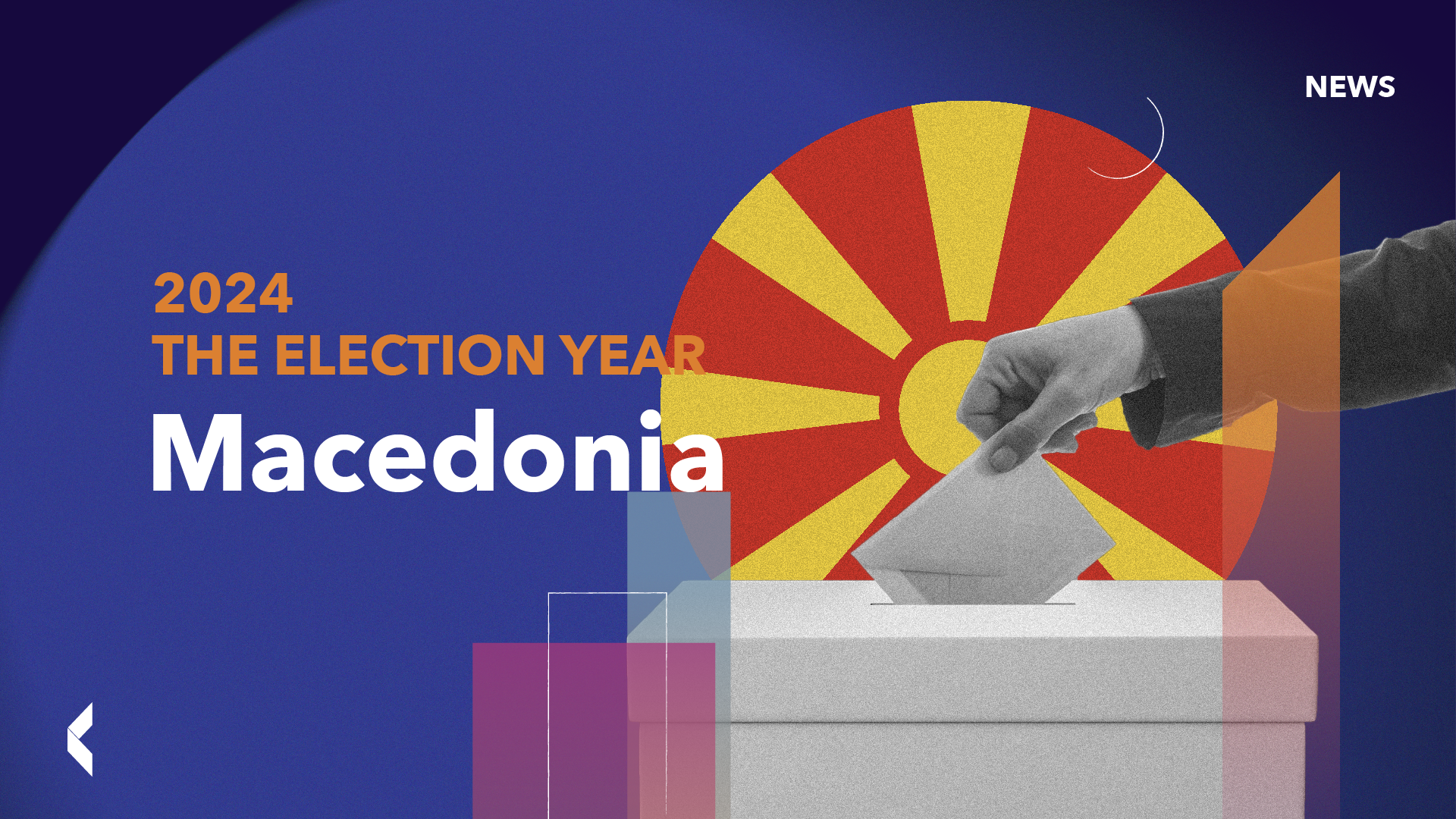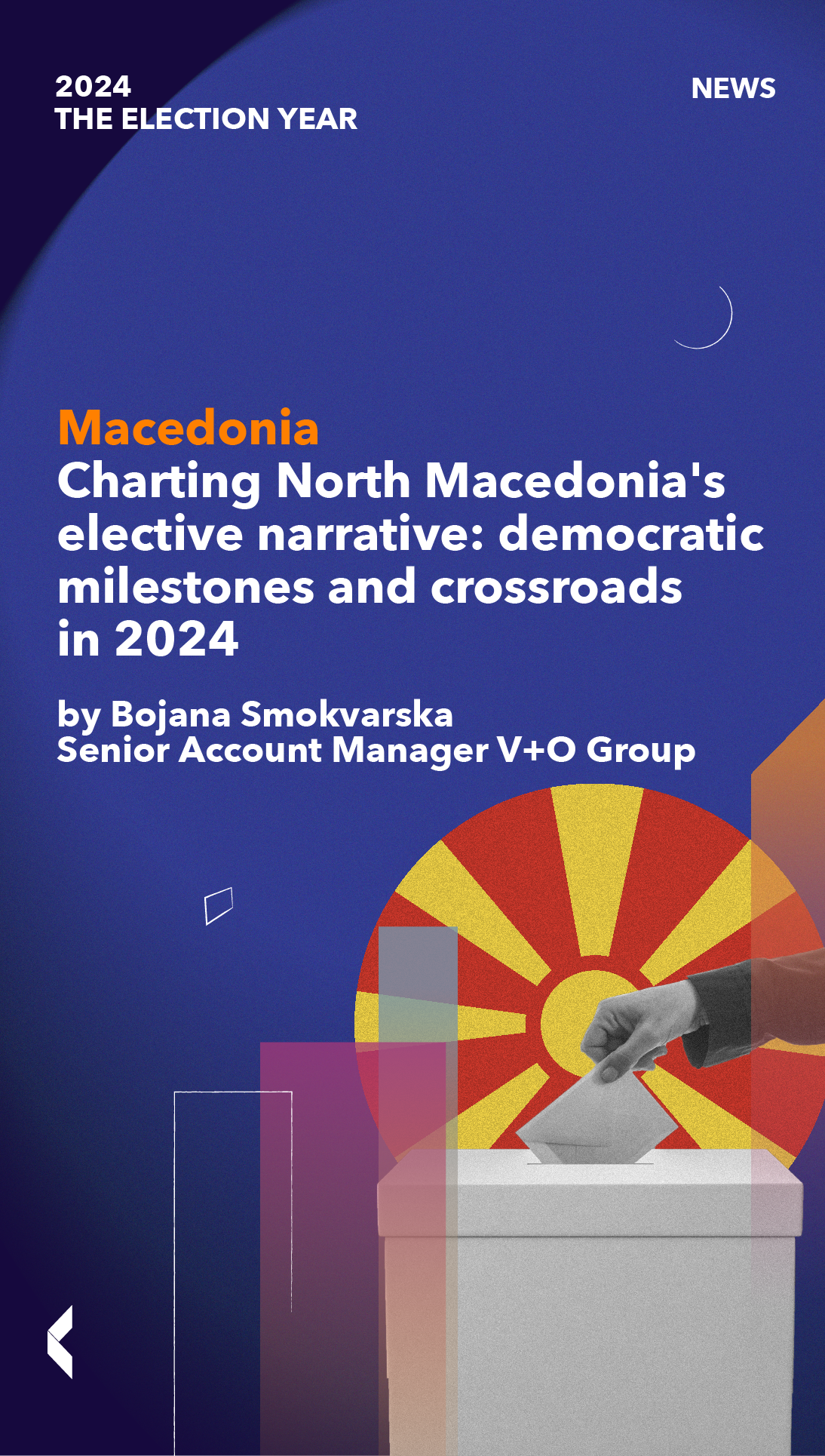About the Author
On February 14th the announcement of the 7th presidential and 11th parliamentary elections by the Assembly marks a fresh chapter for independent North Macedonia. The timeline is set with the presidential elections slated for the 24th of April, followed closely by the parliamentary elections on the 8th of May. The country may see a historic overlap should the presidential elections extend into a second round, coinciding with the parliamentary elections.
Talat Xhaferi: the first Albanian Prim Minister
Talat Xhaferi’s appointment as North Macedonia’s first Albanian Prime Minister leading an interim government is a development that highlights the nations commitment to ethnic diversity and inclusivity. This temporary governing body is positioned to steer the country through a 100-day period preceding the elections paving the way for a process infused with unity and progress.
The race for the ballots
The political arena is buzzing with anticipation as major factions such as VMRO DPMNE (Internal Macedonian Revolutionary Organization. Democratic Party, for Macedonian National Unity) and SDSM (Social Democratic Union of Macedonia) prepare for an electoral showdown.
Each political group has its vision for the future with a focus on North Macedonia’s path towards joining the European Union, which is crucial for the country’s development. Twenty years ago, North Macedonia, Croatia and Slovenia were all named candidates for EU membership. While Croatia and Slovenia have since joined the EU, North Macedonia’s progress has been hindered by disputes with Greece over its name and disagreements with Bulgaria regarding minority rights in its constitution.
Both sides are keen on North Macedonia joining the EU but have differing approaches. VMRO DPMNE, a Christian-democratic party supports integration and NATO membership but opposes the Friendship Agreement with Bulgaria and is not completely in favor of the Prespa Agreement with Greece. On the other hand, SDSM, a center left party strongly backs NATO and EU membership. The party is also a key advocate for the Prespa Agreement with Greece.
The political landscape in North Macedonia is characterized by varying beliefs and goals; parties often form alliances to bolster their position in parliament. An interesting aspect of politics is the leading Macedonian party’s coalition with parties from the Albanian block to form a government. In this arena two significant groups are noteworthy; The Democratic Union for Integration (DUI) currently in coalition with the mandatory SDSM; and the Alliance for Albanians (AA) which stands in opposition. DUI advocates for the “European Front” initiative, while AA’s collaboration with factions under the VLEN coalition highlights a stance with regards to North Macedonia’s EU accession that no Albanian party is willing to compromise.
At present, political discussions are tainted by claims of external interference and negative campaigning, overshadowing the usual policy debates and pledges. Nevertheless, the focus remains on commitments to EU integration, economic progress, infrastructure development and overall improvements in living standards, painting a hopeful picture for North Macedonia’s future.
Presidential elections
In the race for the presidency, seven candidates have thrown their hats into the ring with current President Stevo Pendarovski representing SDSM and Gordana Siljanovska Davkova supported by VMRO DPMNE. The emergence of Bujar Osmani from DUI and Arben Taravari from AA has added intensity, to the competition. Current polls suggest a contest that could potentially lead to the election of the first North Macedonia’s female President—an historic milestone that would reshape the country’s political landscape.

